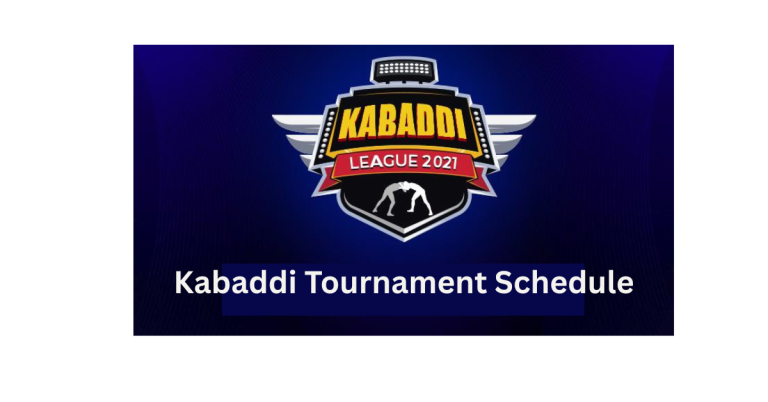AKFI & IKF Under Fire: Will Kabaddi’s Dark Secrets Destroy the Sport?

Kabaddi, a beloved sport in India, has grown tremendously in popularity, thanks to its thrilling gameplay and cultural roots. However, behind the excitement on the mat, the governance of Kabaddi in India faces serious challenges. The Amateur Kabaddi Federation of India (AKFI), responsible for managing the sport nationally, has been criticized for ignoring rules, court orders, and fair practices. Additionally, the International Kabaddi Federation (IKF), which oversees Kabaddi globally, has faced accusations of mismanagement.
The Core Issues in AKFI Governance
For years, the AKFI has been accused of failing to follow the National Sports Development Code of India (NSDC) 2011, a set of rules designed to ensure fair and transparent management of sports in India. The NSDC requires sports bodies to hold proper elections, limit how long officials can serve, and include athletes in leadership roles. However, AKFI elections in 2019 and 2023 reportedly ignored these rules.
For example, in 2019, a Kabaddi reformer challenged the AKFI elections in the Delhi High Court (case WP 8915/2019). On February 10, 2023, the court issued a clear order: AKFI, along with state and district Kabaddi associations, must strictly follow the NSDC 2011 and the AKFI Constitution. Despite this, the 2023 elections saw similar problems. Many elected officials were allegedly ineligible, including government employees, politicians, and relatives of long-serving leaders who had no connection to Kabaddi. These actions violated court orders and the NSDC’s requirement to include 25% eminent sportsmen in leadership roles.
Moreover, state associations like those in Odisha, Gujarat, and Tamil Nadu reportedly failed to hold elections or update their constitutions as required. Some associations allowed leaders to stay in power for decades, ignoring the NSDC’s limit of two terms or eight years. This has led to accusations of nepotism, where wives, children, and friends of powerful officials were nominated to maintain control over AKFI.
Systemic Problems in State Associations
The problems extend beyond AKFI to state and district associations. Documents reveal that 25 out of 28 state associations are controlled by families, with brothers, fathers, sons, or wives holding key positions for 20 – 40 years. For instance, in Odisha, the wife of a long-serving official was elected despite exceeding term limits. In Gujarat, a government employee was nominated despite being ineligible for a second term. These examples show how family control and rule-breaking have blocked new talent from leading Kabaddi.
Another major issue is the illegal transfer of players. Some officials, like those in Haryana, allegedly charge players to represent other states in national championships, earning huge profits. This practice undermines fairness and hurts the sport’s integrity. Furthermore, many state associations have not conducted elections or included eminent sportsmen, violating court orders and the NSDC.
Allegations Against Key Figures
Several individuals have been singled out for their role in these issues. Tejasvi Singh, Kasani Gnaneswar, and Vinod Tiwari, who hold positions in AKFI and IKF, face accusations of manipulating elections, barring Indian teams from international events, and profiting from player transfers. Singh, in particular, is described as a disqualified candidate who has caused disputes since 2019, allegedly acting as a “broker” to control Kabaddi for personal gain. J.S. Gehlot, a former AKFI leader, is also criticized for blocking the growth of Beach Kabaddi and Circle Kabaddi to protect his own interests.
These individuals are accused of working together to maintain power, ignoring court orders, and preventing reforms. Their actions have frustrated Kabaddi stakeholders, many of whom have spent their own money and time to develop the sport.
The Neglect of Beach Kabaddi and Circle Kabaddi
Kabaddi comes in different forms, including Rectangular (standard), Beach, and Circle Kabaddi. However, Beach Kabaddi and Circle Kabaddi have been largely ignored by AKFI. Beach Kabaddi, introduced in 2004 by the reformer, should have seen 21 national championships by now, but AKFI has failed to organize them. Similarly, Circle Kabaddi, popular among Punjab, Haryana, and Chandigarh communities worldwide, has not been supported with regular tournaments.
The reformer argues that J.S. Gehlot deliberately blocked these formats to protect his own interests, preventing India from hosting international events. Meanwhile, Circle Kabaddi World Cups and other tournaments have been held abroad by diaspora communities, showing global interest that AKFI has failed to tap into. This neglect has stunted the growth of these exciting formats, which could attract new fans and players.
A Vision for Reform
The reformer, who claims to have founded Beach Kabaddi and the Kabaddi Premier League, has proposed 28 specific changes to fix AKFI, state associations, and the IKF. These reforms aim to make Kabaddi governance fair, inclusive, and focused on athletes. Here are some key proposals:
1. Elect Athletes: Presidents and secretaries should be eminent sportsmen, and 25%–75% of elected positions should go to Kabaddi players, with 33% reserved for women players.
2. End Nepotism: Relatives and friends with no Kabaddi connection should not hold positions.
3. Ban Politicians: Politicians should not serve as president or secretary.
4. Limit Government Employees: They can serve one term with permission but not a second term.
5. Enforce Tenure Limits: Officials can serve two terms (eight years), followed by a four-year break, though they can contest for president without waiting.
6. Use Experienced Leaders: Honest officials who have completed their terms should serve on sub-committees.
7. Transparent International Representation: AKFI representatives to AKF or IKF should be approved by the Executive Committee or Annual General Meeting, excluding the president and secretary.
8. Restructure IKF: Singh, Gnaneswar, and Tiwari should resign from IKF roles, and directors should represent all continents.
9. Separate Formats: Create autonomous bodies for Kabaddi, Beach Kabaddi, and Circle Kabaddi to promote each format properly.
10. Improve Administration: Reform AKFI’s management, appoint honest selection committees, and use qualified technical officials.
11. Support Women: Appoint women coaches and managers for women’s teams and create a committee to address harassment and other issues.
12. Fair Policies: Introduce a clear player transfer policy and follow government guidelines for sponsorships and league rights.
Community Support and Challenges
Many AKFI members and Kabaddi fans support these reforms. They have spent lakhs of rupees and sacrificed personal time to grow the sport, but they feel frustrated by the ongoing disputes and court cases. They have urged the reformer to guide them on resolving these issues and implementing the court’s orders.
However, challenges remain. The accused officials are reportedly powerful and resistant to change. The government has been criticized for not enforcing court orders, and some officials continue to misinterpret rules to stay in power. Additionally, the IKF’s alleged misconduct, such as barring Indian teams from international events, has hurt India’s global standing in Kabaddi.
Kabaddi is more than a sport, it’s a source of pride for India. However, its growth is at risk due to poor governance, nepotism, and rule-breaking within AKFI and state associations. The reformer’s call for change, backed by court orders and community support, offers a clear path to fix these problems. By electing athletes, ending family control, and promoting Beach and Circle Kabaddi, AKFI can restore fairness and take the sport to new heights.




